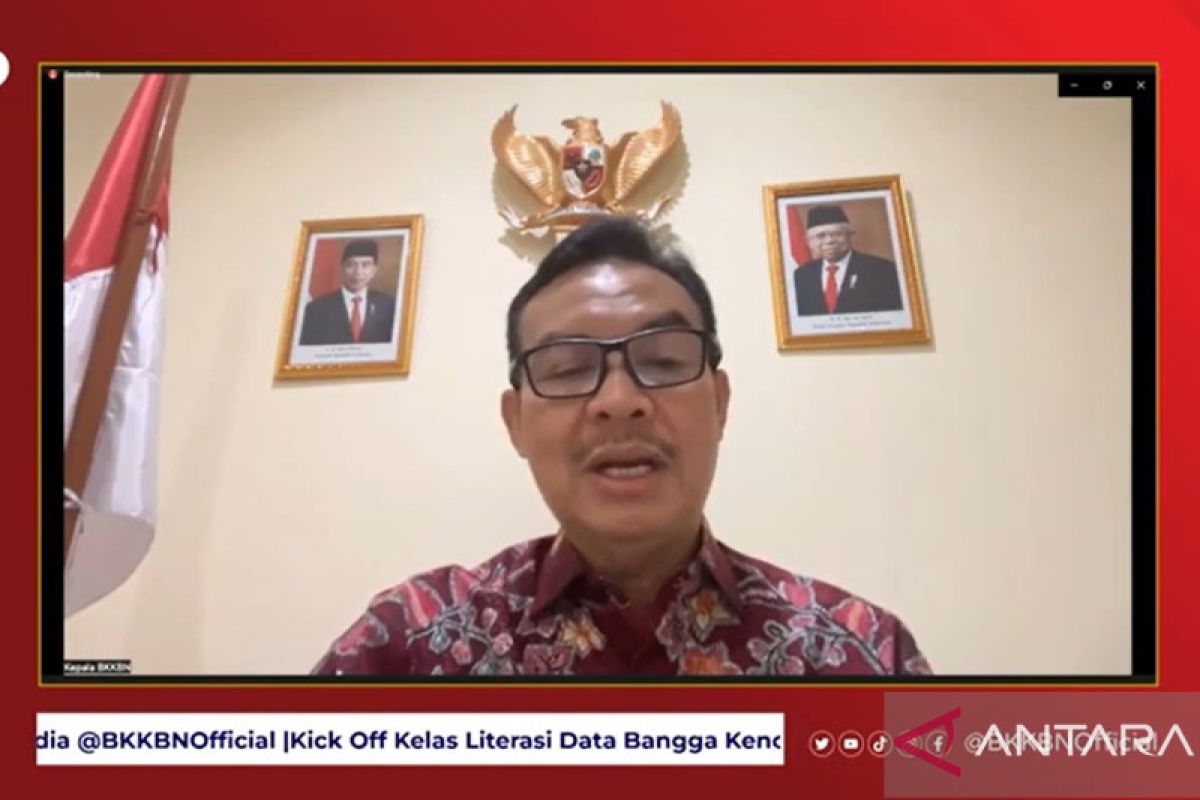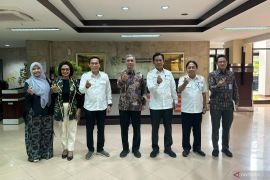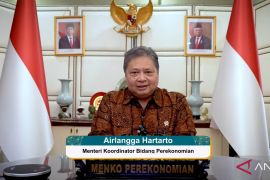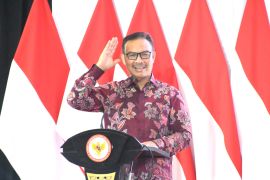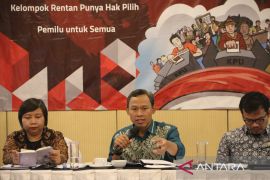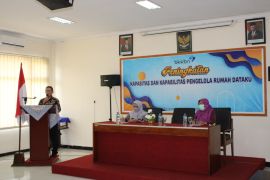"In late 2022, the BKKBN finished updating the PK (data). This is in accordance with the mandate of the law that the data must be updated every year," BKKBN Head Hasto Wardoyo noted at a virtual event on Tuesday.
Wardoyo made the statement at the Proud Kencana, Stunting, and Extreme Poverty Eradication Acceleration Targeting (P3KE) Data Literacy Class event.
He stated that the BKKBN is open in its approach and encourages the use of data and information from the PK-21 data by following the existing law in maintaining data confidentiality of individuals.
Ministries, agencies, and regional governments can also conduct data verification and validation on the field.
He noted that in connection with the update of the PK-21 data, the BKKBN had completed, corrected, updated, and recorded mutations as well as recorded new families that were not covered by conducting door-to-door visits and interviews or observation of family heads simultaneously.
According to Wardoyo, the PK-21 data currently has information on the welfare status of people.
Related news: Local govts must report obstacles to stunting alleviation: BKKBN
In accordance with Presidential Instruction Number 4 of 2022 on the Acceleration of Extreme Poverty Eradication, the result of family data collection is used to formulate policies for interventions in the P3KE program, including stunting reduction.
This is because handling extreme poverty is the same as handling stunting. The field study and data collected by BKKBN showed that several sensitive factors of stunting are closely related to poverty. Those factors include socioeconomic conditions, sanitation conditions, and access to clean water.
On that occasion, Wardoyo commended all parties that have coordinated with his agency in compiling the PK-21 data.
He expressed optimism that the PK-21 data would be used as optimally as possible, so that quality human development in Indonesia could be carried out better.
"We hope the Stunting Reduction Acceleration Teams (TPPS) and the central, province, district, and city Stunting Task Forces use the data of families at risk of stunting as convergence data for intervention targets and family assistance work map for Family Assistance Teams (TPK)," he remarked.
Related news: Govt seeks stronger cross-sectoral cooperation on stunting handling
Related news: Minister Effendy lauds extreme poverty handling in West Papua
Translator: Hreeloita Dharma, Raka Adji
Editor: Yuni Arisandy Sinaga
Copyright © ANTARA 2023
